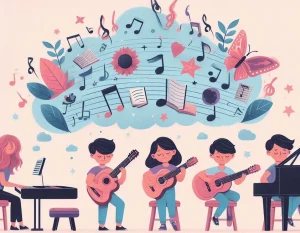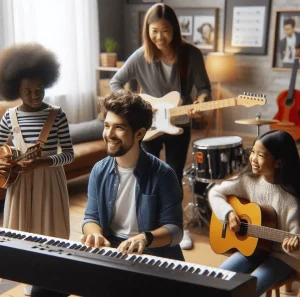Radiophonics Workshop – How Lifestyle & Know-how Paved the Way For These Unlikely Pioneers

A lengthy way from the Hd and Sky+ world of visible media we take pleasure in currently, the 1st tv plans have been crude recordings, with quite very little in the way of enhancing, mastering and undoubtedly no electronic enhancements. It was a small handful of engineers and technicians back in the 1950’s, all associates of a youthful BBC, who had been to modify the way we observed and thought about tv. The do the job of all those who would type and lead to the Radiophonics Workshop around the subsequent 50+ decades served as a benchmark for slicing edge broadcast audio style and a in depth encyclopedia of electronic audio manufacturing and electro-acoustic engineering. The incredible attain and influence of a section that spent a great deal of its afterwards decades battling to continue being open up elevated it to an practically cult standing inside of the audio industries. Names this sort of as Delia Derbyshire turned standard references for broadcast sound designers, recordists and musicians alike.
Usually the operate of your regular BBC office will not obtain around the world recognition and cult position, so what can make the tale of the Radiophonics Workshop stand out? It is the cultural and technological setting of the time that set the foundations for the departments conception. A crucial word that is even now routinely thrown about nowadays is accessibility. It was the normal progression pursuing the development of early television sets to deliver them to living rooms throughout the place and for this new, larger sized and more and more demanding viewers the packages had to progress to accommodate. Of study course staying a promptly expanding, and promisingly integral medium in our day to working day life tv productions and studios were being having fun with large amounts of publicity and recognition, and appreciably – rising budgets.
The initial line of workshop co-founders’ Desmond Briscoe and Daphne Orams’s obituaries include the adjective ‘pioneer’, with reference to their contributions to the electroacoustic, and broadcasting industries. Pioneering is an accurate word to sum up the workshops’ 60 year discography, which features family theme tunes these as Doctor Who in 1963. Published by Delia Derbyshire and commissioned by Ron Grainer, it truly is continue to employed 50 % a century later on. In spite of their considerable successes a lot of would regard the users of the workshop as ‘unsung hero’s’ of sound design. Obtaining begun at the BBC in 1943, aged just 18, Oram invested several years attempting to persuade her businesses to allow the workshop to go ahead, and only succeeded in 1958 when the growing popularity and accessibility of the Television business identified as for greater generation values. The workshop was established up in what is now the renowned Maida Vail Studios, with a spending plan of just £2,000. In 1959 on the other hand, as a consequence of the substantial exposure and recognition of the perform Oram took the selection to depart and go after her tunes, not in advance of leaving her name in the record books as the ‘mother of this terrific legacy’.
French composer Pierre Schaeffer was experimenting with a new musical composition technique named Musique Concrète. Yet another by-item of advancing technological innovation at the time, the mother nature of New music Concrete lies in recording and cutting together digital seems on magnetic tape to produce a entire vary of audio results and musical components the likes of which no-one experienced witnessed prior to. Techniques such as pitch manipulation and echo consequences are even now essential in seem style and design today. It was this strategy that caught the eye of the Radiophonics Workshop and fashioned the foundation of its early productions. Similarly to Schaeffer, the workshop realised pretty speedily how preferred this new sound was, bringing additional public recognition to their perform.
The character of workshops before get the job done was regular with the cultural and technological progressions of the time, making use of and experimenting with newly formulated electronic synthesizers and recordings. By capturing a vary of miscellaneous appears, and using these actual physical chopping and modifying strategies to layer and fade samples the team were being in a position to make audio tracks, include results and even produce electronic music, the likes of which had never ever been heard just before. Very little did they know at this stage that their perform would be referenced religiously over 50 % a century afterwards throughout the recording industries. As very well as delivering the great accompaniment to this new age of tv packages this new technology opened up a earth of experimentation, which would later on pave the way for music output, studio engineering and numerous more media output methods.
Notably, when thinking of the rising speed with which developments in audio technological innovation are getting spot, it is major that a lot of of the tactics 1st applied by the Radiophonics Workshop are utilised all over the movie sound and new music industries now. In the same way parallels can be drawn involving the growing accessibility of audio generation equipment that would later on add to the eventual demise of the workshop. Particularly with the evolution of electronic systems the future organic techniques are to simplify the tactics and processes associated with audio productions, and for that reason carry them to a wider, and at any time increasing team of would-be producers and engineers.
The developments and generation of these systems that introduced the workshop so a great deal consideration was continued, not least thanks to the acceptance these methods and hardware was obtaining and also turned progressively accessible. In addition, with speedily escalating need as an additional byproduct of the inadvertent advertising of their strategies, generation charges for the makers declined as they jumped on the professional possibilities that experienced arisen. It can be claimed that while these advances and increasing accessibility can be detrimental to certain industries and specialties, they can also offer terrific opportunities to those people who are in a position to make use of the new devices and methods, but had been formerly unable to accessibility it. This is something that is perfectly shown by the up to date audio market, with quite a few new genres remaining formed by digital technologies and recording/sampling techniques.
Acquiring contributed to over 300 applications these as Blue Peter, Tomorrow’s World, Blakes 7 and The Hitchhikers Manual to The Galaxy, and having fun with great achievements by the close of the 70’s, contributing components this kind of as in excess of-accessibility and the ensuing lack in money viability marked the close of the workshop in the 90’s. In an unsteady monetary weather, not dissimilar to our current economic downturn, BBC Director John Birt was compelled to order cuts on several departments, like the workshop. Inspite of currently being supplied 5 decades to switch their stability sheets spherical it grew to become clear it wasn’t going to happen. A extended way from the early years where by the methods and equipment utilized was the first of its variety and the productions have been never ever earlier witnessed, the unavoidable demise became a reality. Numerous of the leads to for which can also be attributed to its first accomplishment. By 1998 only one composer, Elizabeth Parker, remained and the workshop was ultimately closed. Fortunately, in recognition of its worth, the BBC commissioned Mark Ayres to Archive the perform of the Radiophonics Workshop the the greater part of it has been saved. This distinctive division grew from a exclusive set of cultural and technological circumstances, which simply cannot be recurring nonetheless are usually paralleled today, and remaining its lasting affect on an industry that is a substantial part of our each working day lives. Apparently, the pioneers of the Radiophonics Workshop continue to stay unsung and virtually unheard of.







